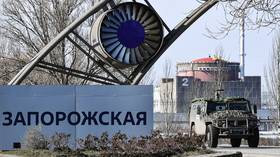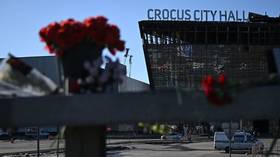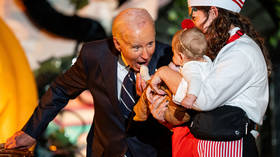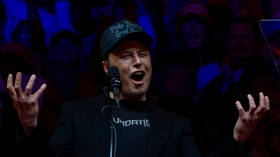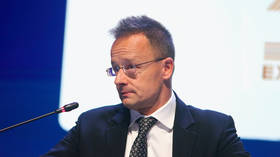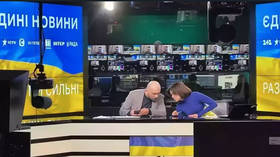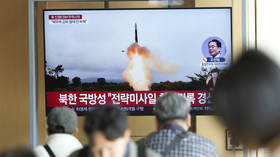‘Russia turned off the gas’ – German leader
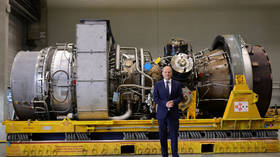
Germans should blame Moscow and not Berlin for high energy prices, Chancellor Olaf Scholz said in an interview published on Friday. He claimed the embargo against Russia was necessary for defending Europe from “imperialism.”
Speaking with Die Tageszeitung, Scholz defended his government’s policy of unequivocal support for Ukraine.
“It’s about defending Europe’s peace order. Russia is waging an imperialist war and must not win,” he told the outlet. “Second: Russia stopped its gas deliveries, not us.”
Russia’s Gazprom delivered natural gas to Germany both via Ukraine – upholding the existing transit contracts – and via the Nord Stream pipeline, built under the Baltic Sea. Under pressure from the US, Germany blocked the certification of Nord Stream 2 in November 2021 – months before the Ukraine conflict escalated.
Berlin refused to certify Nord Stream 2 even after Nord Stream 1 was destroyed by explosive charges in September 2022. Western investigators have yet to name the culprit for the bombing.
According to Scholz, however, his government “developed new sources of supply for gas and oil and built terminals to import liquefied gas.” The LNG has come mainly from the US, at a much higher price.
“All of this has led to energy prices falling again,” the German chancellor said, arguing that his government prevented a ten-year economic crisis through “decisive action.”
Scholz seconded the message of his economy minister, Green leader Robert Habeck, who has argued that the German model of prosperity built around cheap Russian energy was over for good.
“The peacemaking effect of economic contacts was certainly overrated,” he told the Tageszeitung, claiming that Russia sacrificed its economic well-being by choosing violence. To defend its “democracy and freedom,” Germany needs a strong military, an efficient arms industry, and to support Ukraine, he insisted.
Scholz also brushed off the Germans’ concerns about the economy and inflation by saying that green energy and the pharmaceutical industry will soon turn things around.
On the same day his interview was published, Germany’s largest steelmaker Thyssenkrupp announced “a substantial reduction in production” at its Duisburg facility, laying off 13,000 employees. The company blamed “high energy costs and tight emission reduction regulations” as well as increased pressure from Asian imports.
